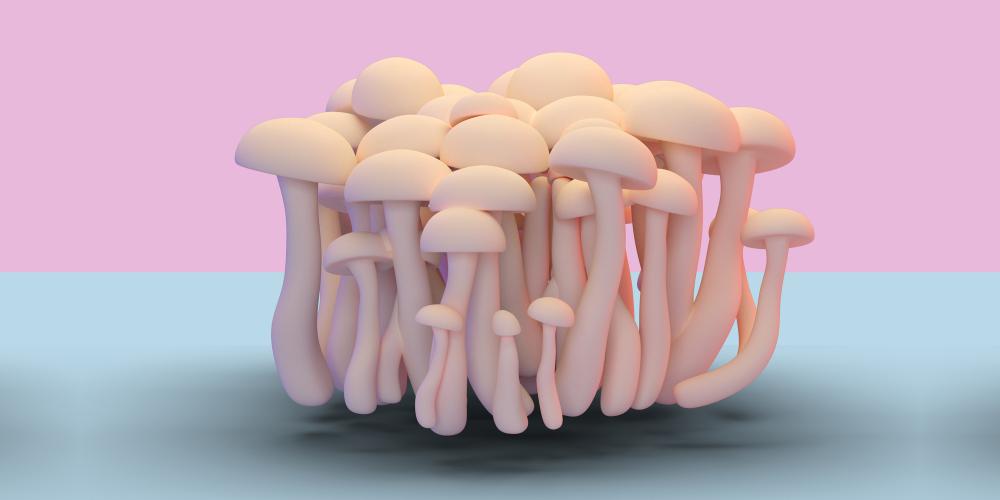
Ergothioneine: The Longevity Nutrient
Ergothioneine is being touted the next “longevity nutrient” so I thought it important to investigate this naturally occurring antioxidant. Several nutrients over the last couple of years claim to be longevity vitamins but at best provide marginally positive benefits. So let’s take a look at whether ergothioneine is the next longevity nutrient and if so how it may help support healthy ageing.
What is ergothioneine?
Ergothioneine is an amino acid that cannot be manufactured by the body. It must be obtained from our diet but unfortunately this does not happen to be the case as the rich sources of this protein builder are chicken liver, tempeh and mushrooms which are generally not consumed in meaningful quantities on a daily basis. Although kidney beans and oat bran do contain this amino acid, it is generally accepted that our diet simply does not provide sufficient ergothioneine and so it can be obtained by way of supplements.
Most tissues in the body contain ergothioneine and the highest concentration of this amino acid is found in cells prone to oxidative damage and inflammation. Ergothioneine's benefits include providing protection to the blood, bone marrow, eye lens, brain, liver and skin.
The science behind ergothioneine
Several recent findings ensured that ergothioneine is a vitamin that was at the forefront of scientists’ minds when it comes to healthy ageing. Our bodies produce a specific protein that takes up this amino acid from our diet and distributes it to the cells. Although this protein can carry many different compounds, it transports ergothioneine a hundred times more efficiently than other nutrients and this preferential treatment suggests the importance of this powerful antioxidant.
Further interest was generated when observational studies found a link between levels of ergothioneine and life expectancy. It was observed that countries whose population had lower levels of this nutrient also had lower than average life expectancy.
Additionally, it was found that higher levels of ergothioneine were associated with lower levels of cardiovascular disease and cognitive decline both of which have been on the increase over the last two decades.
So how does ergothioneine actually work?
L-ergothioneine is a sulphur containing compound that resembles glutathione which is one of the most powerful antioxidants within our bodies. In the way, this powerful antioxidant has the capability of mopping up free radicals and damaging molecules that have an impact on our DNA and other cell structures.
Inflammation makes our cells age faster and our bodies more prone to age-related concerns. Free radicals cause damage leading to inflammation which is one of the major causes of ageing of our bodies. Hence this amino acid not only mops up damaging free radicals and in doing so works to ensure inflammation is kept at bay.
Another reason for the ageing process is the shortening of telomeres. Telomeres are basically like caps that protect our chromosomes. As long as they remain intact, our genetic material in chromosomes remains intact too. A study published in 2020 showed that ergothioneine significantly reduced telomere shortening which would explain why it may help longevity.
Can I take ergothioneine with other supplements?
Ageing is a multi-faceted process involving oxidative damage, UV radiation, internal free radical production, slowing of multiple processes that occur within the body and shortening of telomeres.
Supplements do play a role in multiple ways to slow down the ageing processes including neutralising free radicals and protecting our cells from oxidative damage. We are often reminded to eat a variety of fruits and vegetables of difference colours as they contain different types of antioxidants. The same applies to antioxidant nutrients; different antioxidants will help across the board in protecting the body.
Ergothioneine can be safely taken with anti-ageing nutrients such as hyaluronic acid, collagen as well as antioxidant nutrients such as vitamin C and astaxanthin.
Summary
Ergothioneine is a natural component found largely in mushrooms. There is sufficient correlational data suggesting that populations with high intakes of edible mushrooms have a lower mortality rate in comparison to those with lower consumption.
The exciting recent findings that mammals specifically have transporter proteins that take L-ergothioneine to all the cells of the body suggests the importance of the nutrient. Through its actions on UV defence, preventing telomere shortening and its antioxidant properties, this amino acid may help slow down ageing.
Observational studies confirm higher levels of L-ergothioneine are linked to reduced risk of several age-related concerns such as heart disease and poor brain function.
As far as ergothioneine supplements are concerned, Life Extension Essential Youth L-Ergothioneine capsules each contain 5mg of this powerful antioxidant which is the strength used in studies.
DISCLAIMER: The views, opinions and information expressed in this article and on Victoriahealth.com Ltd are those of the author(s) in an editorial context. Victoriahealth.com Ltd cannot be held responsible for any errors or for any consequences arising from the use of the information contained in this editorial or anywhere else on the site. Every effort is made by the editorial and content team to see that no inaccurate or misleading information, opinion or statement appear, nor replace or constitute endorsement from medical bodies or trials unless specified. Victoriahealth.com Ltd accept no liability for the consequences of any inaccurate or misleading data, information, opinion or statement. Information on Victoriahealth.com Ltd and in the editorials is provided for informational purposes only and is not intended as a substitute for the advice provided by your physician or other healthcare professional. You should not use the information on this website or in the editorials for diagnosing or treating a health concern or disease, or for the replacement of prescription medication or other treatment.